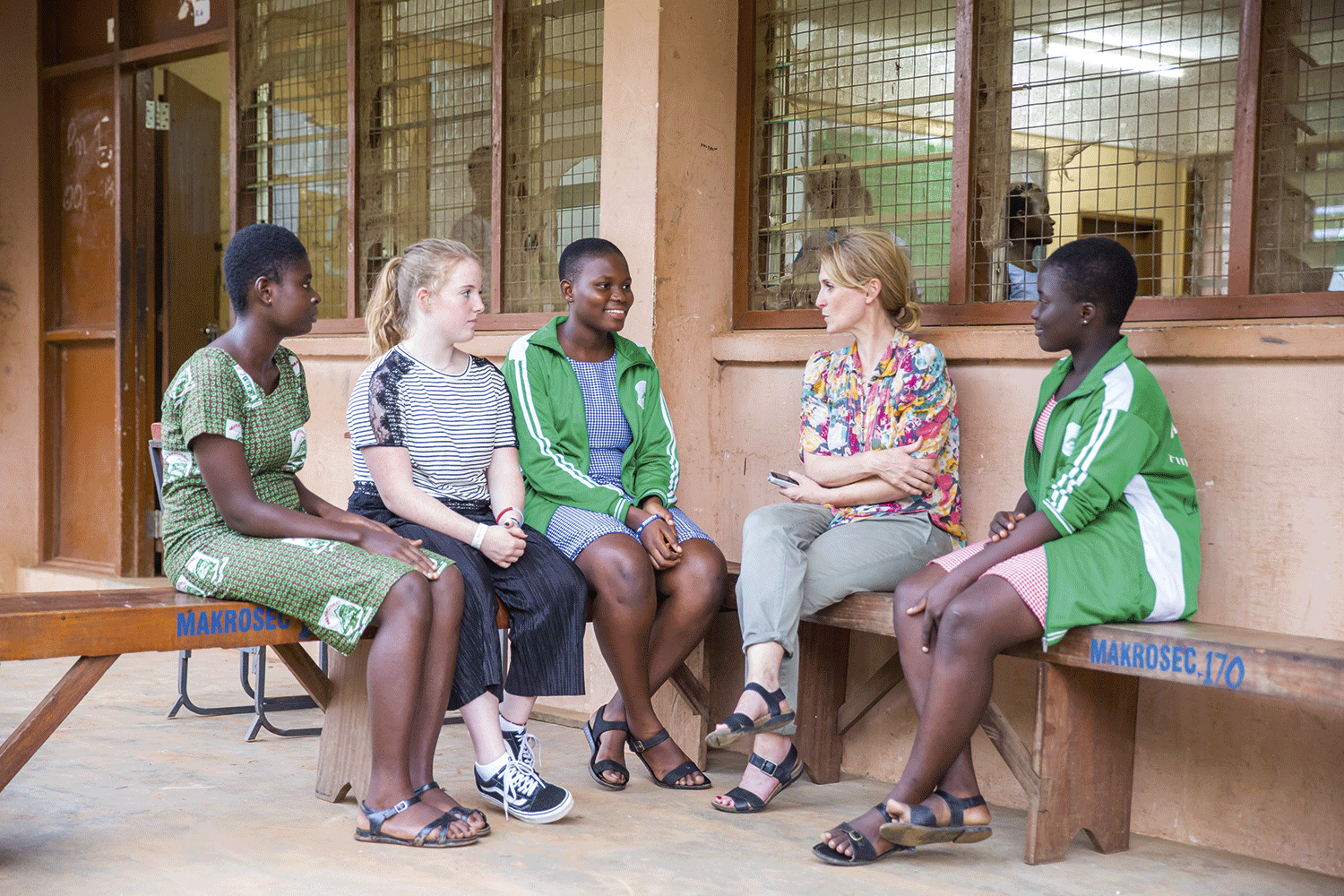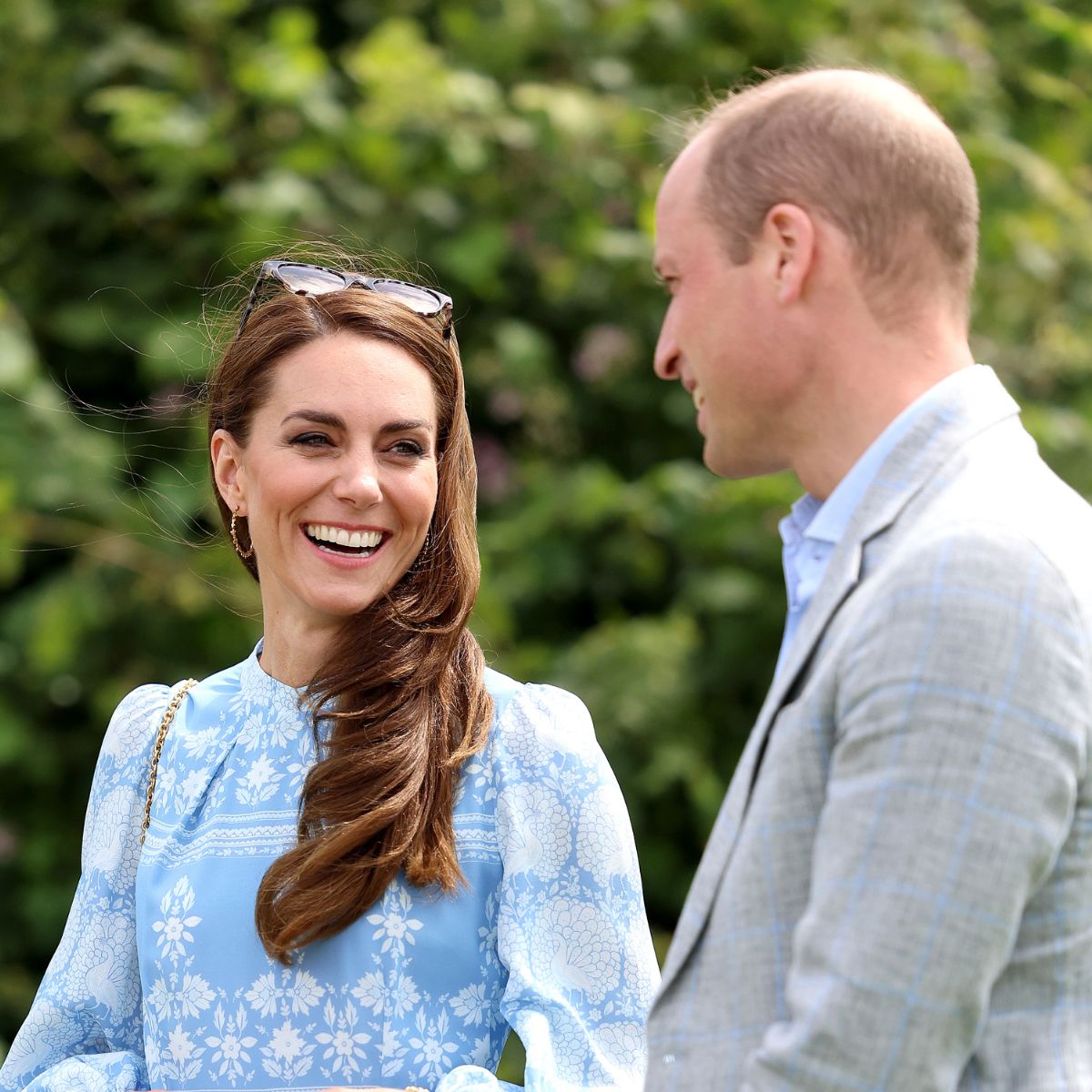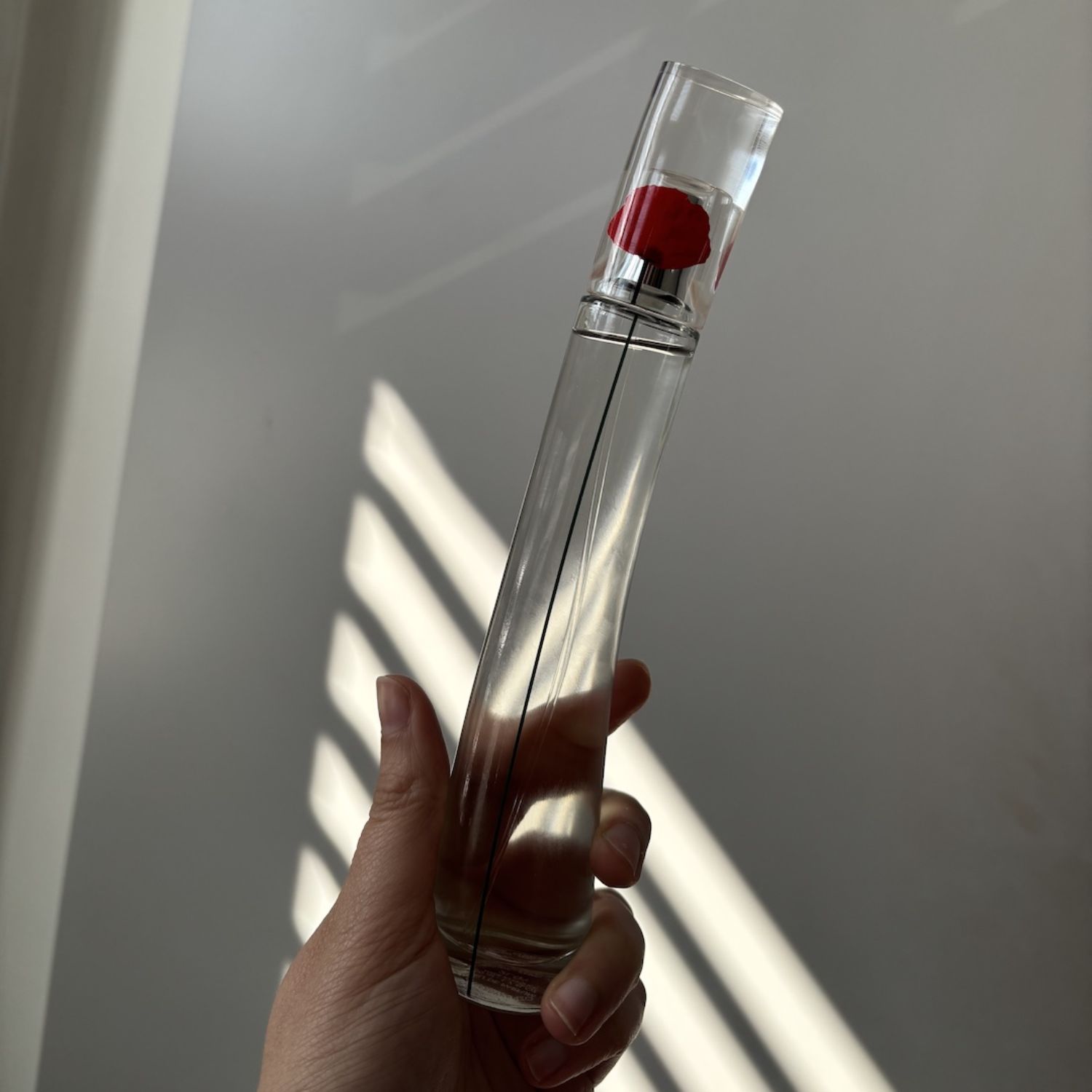International Day of the Girl: Our editor meets the sisterhood inspiring change in Ghana
Ahead of International Day of the Girl on 11 October, Editor in Chief Trish Halpin travelled to Ghana with her daughter Esme, 14, to meet the girls and women tackling teenage pregnancies and gender inequality. Here, they share their experiences
Ahead of International Day of the Girl on 11 October, Editor in Chief Trish Halpin travelled to Ghana with her daughter Esme, 14, to meet the girls and women tackling teenage pregnancies and gender inequality. Here, they share their experiences
Trish’s diary…
Smartly dressed in her yellow and brown school uniform, 15-year-old Victoria sits with her one-year-old daughter Angela on her lap, outside the small hut where she lives with her parents and siblings in Aboabo, a village near Koforidua in Ghana’s eastern region. Minutes earlier she was playing with her friends in the dusty schoolyard, but now at home she has to take over from her own mother to care for Angela. She looks nervous, ready to hand the baby back to a grown-up at the earliest opportunity – not unlike most teenage girls I know. ‘I don’t like being a mother because I am a child myself,’ she tells me, and as I look at her tiny frame beside my own 14-year-old daughter, it’s heartbreaking to imagine the toll pregnancy and birth must have taken on her.
Each year, 7.3 million girls worldwide become pregnant (20,000 of those are in UK), and Victoria is one of the more fortunate ones. With the support of her family and the charity Plan International, she stayed in school during her pregnancy (even sitting an exam the day before giving birth) and returned after having her daughter. Often, the stigma means girls are forced to stay at home, with teachers refusing to allow them into class; or they are made to marry and have more babies, and the cycle continues.
One woman we meet who is determined to break that cycle is Sefia, 34, mother to Kelvin, 17, and Rhoda, 14. As a child, she dreamed of being a nurse, encouraged by her mother who told her stories of the female doctors, nurses and teachers who worked in her hometown, before she moved to a village as a teenage girl to be married. ‘I don’t want Rhoda to go through what I did,’ says Sefia.
‘Seeing my little sister, who is more empowered to approach gender issues, makes me feel hopeful’
‘I wanted to do something with my life, but I had to drop out of school to work and feed my children. When they are grown up, I will go back to school and become more successful.’ And I believe she will: articulate, smart and determined, Sefia beams with pride as Rhoda shows us her exercise books, filled with pages of neat handwriting in perfect English.
Fifty miles away in Ghana’s capital, Accra, we meet Lillipearl, 25, a journalist at the Business & Financial Times. Over a lunch of fried fish and jollof rice, Lillipearl explains how Plan International’s Girls in Media programme at her rural school sparked her passion for journalism and gender advocacy. ‘We were taught how gender is different to sex, and looked at how roles are gendered in society. It’s going to take 270 years to close the economic gap in Ghana [the UK is predicted to take 100 years], but even seeing my little sister, who is more empowered to approach gender issues, makes me feel hopeful.’
‘Teach a girl, change the world’ is one of my favourite sayings, and supporting girls like Victoria, Rhoda and Lillipearl surely has to be one of the best investments any of us can make for the future of this planet.
Marie Claire Newsletter
Celebrity news, beauty, fashion advice, and fascinating features, delivered straight to your inbox!

Esme’s diary…
When my mum asked me to go with her to Ghana on an assignment to meet girls my age and see what life is like for them, I was excited but had no idea what to expect. I’ve been to Africa on a safari holiday, but knew that this would be completely different. We flew into the capital Accra and the next morning, drove out to the town of Koforidua, our base for the trip.
The first village we visited was Kwamoso in the district of Akuapem, where we turned off the main road on to a bumpy dirt track and I saw the tiny school building, not even the size of my school gym. The headteacher introduced me to a girl my age called Rhoda and we chatted about school and how much she loves reading – she gets top marks for everything, not like me! Rhoda wanted to show me where she lives with her grandmother – her mum has to work away from home to be able to afford to send money for food and keep her and her brother in education, which I think must be so sad for her. Her grandmother’s home was along another dirt track just minutes from the school. They have no electricity or running water, and Rhoda is not allowed out after 6pm so she can focus on her studies. Her mum doesn’t want her to become pregnant like so many other girls.
‘Back in London, I realise how lucky I am to have so much education ahead of me’
The next day, I feel glad for Rhoda when we meet Victoria, who became pregnant a year ago at my age. Her baby Angela is really sweet, but I can’t imagine wanting to have a baby until I’m at least 30, if at all. It must have been so scary for her to give birth and now her whole life has changed, but at least she still goes to school.
I remember first having sex education in junior school, but in Ghana they don’t teach it even to teenagers. When we visit a senior school, my mum asks the headmistress about it and she says that instead they promote abstinence – she gets the class to sing a song about it, which is entertaining but I doubt it’s very helpful.
Back in London, I realise how lucky I am to still have so much education ahead of me. Rhoda and I have been emailing each other and we’d like to meet again one day – hopefully when she becomes the nurse or doctor that she dreams about being.
Find out more about the Because I Am A Girl Campaign or sponsor a girl at plan-uk.org
The leading destination for fashion, beauty, shopping and finger-on-the-pulse views on the latest issues. Marie Claire's travel content helps you delight in discovering new destinations around the globe, offering a unique – and sometimes unchartered – travel experience. From new hotel openings to the destinations tipped to take over our travel calendars, this iconic name has it covered.
-
 Timothée Chalamet’s mother has opened up about his relationship with Kylie Jenner
Timothée Chalamet’s mother has opened up about his relationship with Kylie JennerBy Jenny Proudfoot
-
 Princess Kate has started a new tradition with Prince Louis’ birthday portrait
Princess Kate has started a new tradition with Prince Louis’ birthday portraitBy Jenny Proudfoot
-
 As a perfume-obsessed beauty editor, I can’t believe it’s taken me 25 years to try this classic Y2K scent
As a perfume-obsessed beauty editor, I can’t believe it’s taken me 25 years to try this classic Y2K scentIt was worth the wait
By Mica Ricketts